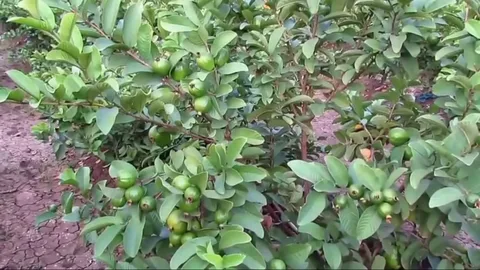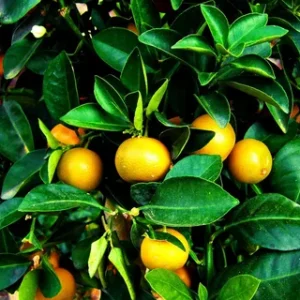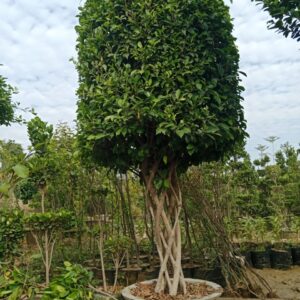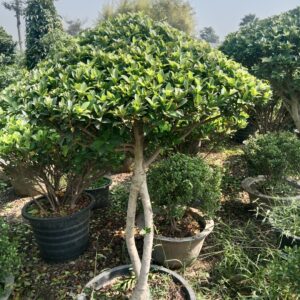Benefits of Guava Plant
- Rich in Nutrients: Guava is packed with essential vitamins and minerals, especially Vitamin C, potassium, and fiber, which boost immunity and improve digestion.
- Improves Digestion: Guava fruit is high in dietary fiber, helping prevent constipation and promoting gut health.
- Supports Heart Health: Regular consumption of guava may help lower blood pressure, cholesterol, and maintain healthy heart function.
- Boosts Immunity: The high Vitamin C content in guava strengthens the immune system, helping the body fight off infections.
- Regulates Blood Sugar: Guava’s low glycemic index and high fiber content can help control blood sugar levels, making it beneficial for people with diabetes.
- Enhances Skin Health: Guava contains antioxidants and vitamins that contribute to radiant skin, reducing wrinkles and preventing damage from free radicals.
- Aids in Weight Loss: Guava is low in calories and packed with nutrients, making it a filling, healthy snack option for weight management.
How to Grow a Guava Plant
- Choosing the Right Variety: Select a guava variety that grows well in your region. Popular varieties include the tropical Pink Guava and the Apple Guava.
- Climate: Guava plants thrive in tropical and subtropical climates but can tolerate mild cold. The ideal temperature is between 68°F and 82°F (20°C to 28°C).
- Planting Location: Guava plants need plenty of sunlight. Choose a spot with at least 6-8 hours of direct sunlight each day.
- Soil Preparation: Guava grows best in well-draining soil with a pH between 5 and 7. Loamy or sandy soils are ideal. Enrich the soil with compost or organic matter before planting.
- Planting Process:
- Seeds: You can grow guava from seeds, though it may take 2-8 years for fruiting. Plant seeds 1/4 inch deep and keep the soil moist until germination.
- Cuttings or Grafting: For faster results, grow guava from cuttings or grafted plants. Plant the cutting or grafted plant in a well-dug hole and backfill with soil.
- Watering: Water the plant regularly, but avoid waterlogging. Keep the soil evenly moist, especially during flowering and fruiting stages.
- Fertilization: Apply a balanced fertilizer (NPK) every 4 months during the growing season. Organic compost or manure works well for guava plants.
- Pruning: Prune the guava tree to remove dead or overcrowded branches and shape it. This encourages better air circulation and light penetration.
- Pest and Disease Control: Watch out for pests like aphids and fruit flies. Neem oil or insecticidal soap can help control infestations. Proper sanitation and care prevent fungal infections like anthracnose.
- Harvesting: Guava fruits are ready to harvest when they turn soft and give off a pleasant aroma. Depending on the variety, this can take 3-4 months after flowering.
With the right care and attention, you can enjoy fresh, nutrient-packed guavas from your garden!




Reviews
There are no reviews yet.